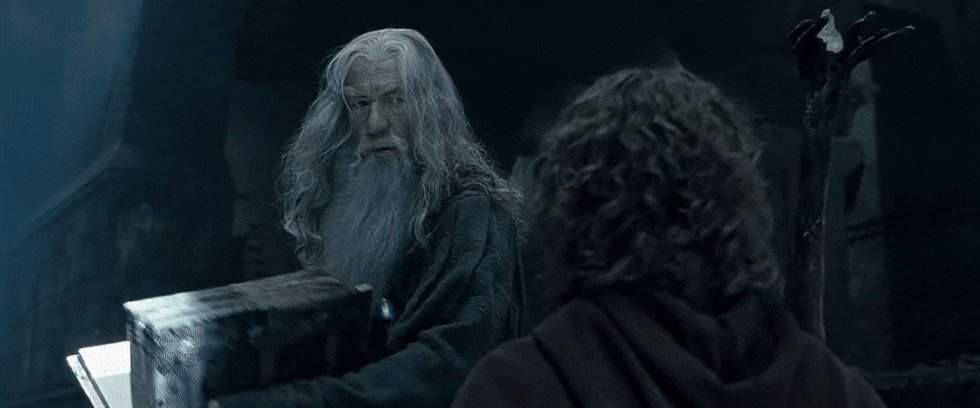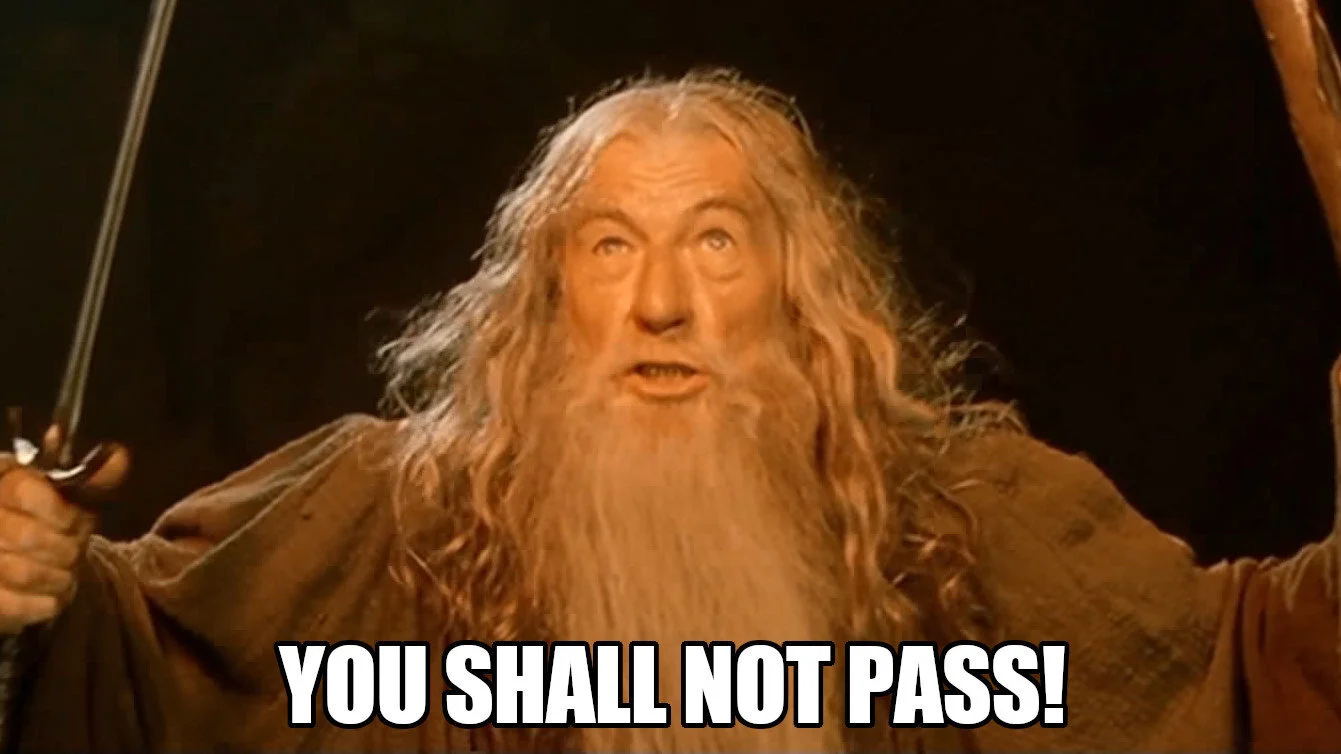Reading The Lord of the Rings for the first time: Part 1 - The Fellowship of the Ring 💍
I have watched the movies a billion times, but this was my first reading of the first novel in the trilogy. I tried many years ago, but I found the print too small, and I would get a headache nearly immediately. I didn’t realise that I needed glasses at this point. Fool of a Took!
After I got glasses, I was then put off because I was worried that I wouldn’t enjoy the books, as if the hype of J.R.R Tolkien and the brilliance of the movies might not come through in the books. An example of this is Blade Runner and Do Androids Dream of Electric Sheep? I had watched the movie (several times) long before reading the source material and found that I hated the book, it was dull and boring, and the huge deviations from the plot that Ridley Scott had made in the film made it so much better, so so much better. Could Peter Jackson have done the same? Perhaps, was all that was on my mind, so a few more years passed until I finally picked up the book this past month.
And I can wholeheartedly say that I absolutely loved it! Much to my relief. However, a part of me felt sorrow that I hadn’t read it sooner. But I know for sure that I will re-read this book many more times throughout my life. Moreover, perhaps if I have children (very unlikely) or in my role as an Aunt to my (almost certain) future nieces and/or nephews, I will read these books to them.
The magic that Tolkien weaves is not only in the fantastical plot and the cast of characters (elves, wizards and dwarves) but also within the way he crafts the story and describes the settings. I want to visit The Shire, Rivendell and Lothlórien because of how beautifully realised they are and Tolkien’s keen love for nature really shines through in his descriptions of these places. Furthermore, It is easy to see how much work and time went into creating his middle-earth, a lifetime really and its magnificent. The scope and mythology permeate every line, and the charming (though often disliked) song interludes only add to this.
Narratively, The Fellowship of the Ring is a solid beginning to the adventure, and it’s obvious that the trilogy was originally intended to be one whole book, and I kind of still view it that way, same for the movies; the extended editions feel like a whole mini-series rather than three separate movies.
Tonally, I love how Tolkien writes. There is a seriousness and gravity to the story, but there is also great lightness and humour, especially at the beginning; I found myself chuckling aloud at the drama of Bilbo’s dealings with the Sackville-Baggins family. Another thing that felt better in the books was the passing of time. In the movies, the fellowship’s journey doesn’t seem to last anywhere near as long as it does in the book, and that’s because those epic aerial shots in the films don’t last anywhere near as long as Tolkien’s descriptions. And rightly so, different mediums have different ways of telling a story, and a film can’t dwell on the small details for as nearly as long as a book can.
However, one thing I will say against the book is that I kind of found Tom Bombadil a bit shit. There I said it. In my opinion, Jackson did well to leave him out of the movies as he doesn’t really serve much purpose to the wider story thus far anyway (does he even come back again?). I know there’s a divide between Lord of the Rings fans about Bombadil, and I must say that I am on the side that sees him as a non-entity. Maybe that’s harsh, but I also feel in further re-reads I’ll probably skip his chapters! Perhaps, it’s his selfishness that irks me, as it’s clear that Bombadil is too wrapped up in his own life to worry about what might happen if the ring gets into the wrong hands. Even stoic and eternal Elves, ancient Ents and the majestic eagles help despite their ‘oldness’, so to have Tom Bombadil sit out the most important fight for middle-earth just exposes him as an absolute arsehole. That's the tea ☕
As for the rest of the characters, I love them all, though not equally. Samwise is so bloody wholesome, Aragorn is equally as charming and valiant as he is in the movies, but perhaps a little graver, and I have to admit that since I was like 8, I’ve had a massive crush on the character (of course, who wouldn’t when he is portrayed by the dashing Viggo Mortensen lol).
Frodo is perhaps less annoying than he is in the movies; Legolas is as cute as always and more interesting as in the movies he’s kind of just there to look cool and state obvious things. Gimli is just Gimli; Merry and Pippin are perhaps not as mischievous as they were in the movies? And Gandalf, you ruddy legend, though his ‘you cannot pass’ doesn’t hold the same gravitas as ‘YOU SHALL NOT PASS!’.
Lastly, Boromir, he’s a bit of a twat, a broken record if you will, and I must say in the movies, I preferred his brother Faramir, but of course, we won’t meet him until later in the trilogy. But his purpose of demonstrating the weakness of man in the face of the one ring is still very much pertinent and just as brilliant as Sean Bean portrayed it in the movies.
Overall, I have loved reading the first part of The Lord of the Rings, and I can’t wait to pick up the next book and continue the journey. This story is so familiar to me because of how many times I’ve watched the movies, but I equally like the surprises of how the source material differs from its cinematic adaptation.
I also feel like I’m on a journey with firm friends, and it’s lovely to read a story in such uncertain times that sees the slow and arduous triumph of good over evil. It’s a comfort book that makes me feel all cosy and warm inside, and wishing I could be reading it on a chaise lounge in the middle of Rivendell. Wouldn’t that be something?







